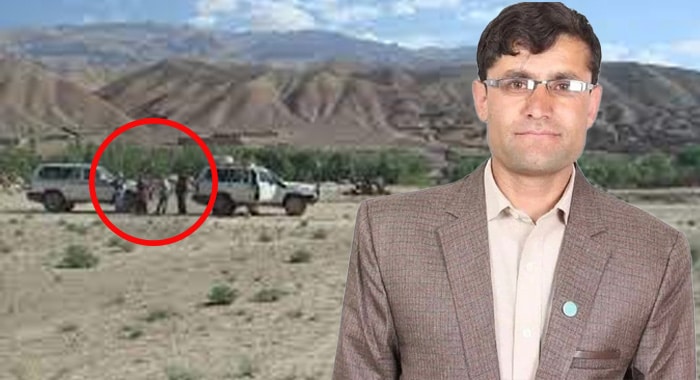Fazl Ahmad Paeez, head of Religious Affairs for the Aga Khan Foundation in Zebak district of Badakhshan province, was brutally killed by armed assailants on Friday evening, 4 July, local sources confirmed to Afghanistan International.
According to eyewitness accounts, unidentified gunmen raided Paeez’s residence, forcibly dragged him outside, and shot him dead on the spot. Shocking images from the scene show his body covered in blood, underscoring the brutality of the targeted killing.
Taliban officials have yet to issue any statement regarding the assassination.
This tragic incident marks the second targeted killing of an individual linked to the Ismaili community in recent months, deepening concerns over systematic repression of the religious minority since the Taliban’s return to power.
Just weeks earlier, Sayed Qiyamuddin a WHO employee from Yamgan district was reportedly tortured and killed in Jalalabad under eerily similar circumstances.
Over the past few years, growing reports have emerged of threats, forced conversions, and harassment of Ismaili community members in Badakhshan. In one alarming case, the Taliban-appointed district governor in Nusa, Jumakhan Fateh, was accused of coercing dozens of Ismailis into abandoning their faith.
Sources also allege that the Taliban have begun establishing “jihadist schools” in Ismaili-dominated regions, while deploying Sunni clerics with the aim of enforcing religious uniformity.
Further fueling the outrage is the silence of Taliban leadership over the death of Prince Karim Aga Khan, the global spiritual leader of the Ismaili community, who passed away last year. While global leaders and the United Nations offered condolences, the Taliban issued no official comment.
The escalating violence and suppression have drawn sharp criticism from human rights organizations, who warn that religious pluralism in Afghanistan is at serious risk of extinction.





